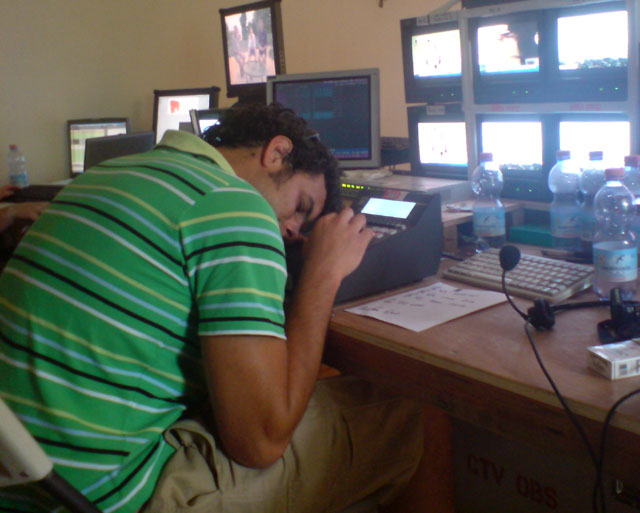 My humorous Native American name for my younger daughter was Face In The Soup. When she was tired, SHE WAS TIRED, and by the 6:00 p.m. dinner hour, her face went down on the table and it didn’t come up. As a young mother, I learned quickly to make sure she had received all of life’s necessities before OUR dinner time because no matter what happened in my own life, at 6:00 p.m. her curtain was going down. If she were now an anesthetist on the job, her adopted name could be Dies on the Table or Puts Patients at Risk.
My humorous Native American name for my younger daughter was Face In The Soup. When she was tired, SHE WAS TIRED, and by the 6:00 p.m. dinner hour, her face went down on the table and it didn’t come up. As a young mother, I learned quickly to make sure she had received all of life’s necessities before OUR dinner time because no matter what happened in my own life, at 6:00 p.m. her curtain was going down. If she were now an anesthetist on the job, her adopted name could be Dies on the Table or Puts Patients at Risk.
Chuck Biddle, CRNA, PhD, chief editor of the AANA Journal and multi-published author of sleep deprivation articles, quotes another anesthesia industry sleep expert, June J. Pilcher, when he reports that: Fatigue caused by lack of adequate sleep results in diminished cognitive function, impaired vigilance, decay in problem-solving ability, degradation in memory, and eroded motivation.
Click here to read the article.
Okay, so I can’t tell you anything that will make the surgeon close that thoracic cavity in time for you to be eating dinner by 6:00, or to watch Dancing With The Stars, or to shower off the sounds, smells and stress from the OR and still drop into bed by 10:00. But I can give you some simple fitness suggestions for making sleep more useful when your head makes contact with the pillow-top. People who are fit and healthy sleep better than those who aren’t. Simple. True.
Physical exercise is way at the top of ways in which to elevate energy but tire the body in such a manner as to make sleep deeper and easier. Although it is a personal choice as to what time of day you should do your cardio or tote that bail, you can figure it out in just a few morning or evening trips to the gym, or on the elliptical in front of your Netflix pick. Morning cardio elevates your metabolism and your heart rate which energizes you for the better part of the day but fatigues you in a pleasant way by or before gall bladder number six. Doing your cardio before bed does the same thing to metabolism and heart rate so you probably want to take a bit of down time between cardio and vespers. Some of you may prefer to do a lunchtime cardio on the days it’s possible, a great substitute for pop ‘n pizza. Try to create some routine so that your body says, “It’s time to cardio; it’s time to eat; it’s time to don the scrubs; it’s time to let down; it’s time to sleep.”
Stretching and crunching before bed is another great way to relax and create routine before the sandman comes. Tom S. Davis, CRNA, MAE, likes to say, “Every day that I don’t make time to stretch is one day closer to the day I won’t be able to.” If you don’t have a designated work-out area at home, keep a Pilates mat, a towel and a 55cm fitball (inflatable stability ball) in your bedroom so that it’s easily available every evening. Do various crunches that access all areas of the abs followed by a thorough five-minute stretch routine that leaves you feeling loose, relaxed and calm. Wind down by finishing your toilette routine. Then crawl in and let go.
Eat dinner right before bed…and you’ll sleep poorly. Drink coffee right before bed…and you’ll have to interrupt your sleep to offload. Consume alcohol in excess…and reflux, insomnia and restless sleep will be your companions. Wear a belly to bed that looks like an eminent delivery, and you’ll wake yourself up with your own snores, not to mention that you’ll be sleeping alone. In short, what you put in your body all day is the very same thing you’ll put into bed that night and your sleep will thrive or dive because of it. Lower the bad fat in your diet, especially lower the sugar, decrease the volume of intake and put down the fork, fingers or chopsticks between every few bites. Intentional eating of reasonable kinds and amounts of food are your fitness friend, and quality sleep will become a close relative.
Finally, stay away from negative news, time-consuming e-mails, family complaints and anything else that puts your head in a quandry and reduces your tranquility. Say, “Good-night,” to your honey, calmly go through your affirmations, prayers or meditation minutes and put out your lights. Six hours, seven hours, preferably eight hours later, your fit, healthy Self will be refreshed and ready to take your life back. Then go pop into the OR bright-eyed and bushy-tailed and clip on your nametag: Saves The Lives of Others.
Other Tips
Take a power nap during your break.
Don’t stop for restaurant food on the way home.
Don’t drink alcohol.
Avoid drugs and sleep aides.
Get extra sleep BEFORE call.
Avoid arguments.
Split your cardio into morning and evening.
Eat very lightly if it’s late.
Read relaxing lit.
Do Yoga.
Meditate.
Say, “Good-night, Gracie!”
You can visit Liz during your waking hours at www.bdyfrm.com. Read the motivational, entertaining Lizlines Monday through Friday and watch for her original Lizlimerick once a week. Ms Liz
FitnotesChuck Biddle, CRNA, PhD, is a professor and staff anesthetist at Virginia
Commonwealth University, Richmond, Virginia. He is editor in chief of the AANA Journal. Email: cbiddle@hsc.vcu.edu. Tom Davis, CRNA, MAE is chief nurse anesthetist at Scott and White Medical Center, Temple, Tx and former assistant professor of nurse anesthesia at University of Kansas. He is the owner of and consultant for Procrna.com. Email: tom@swcrna.com

Restful sleep is difficult on a busy call night. I get to nap here and there but usually don’t get the deep sleep that my body needs. It seems like it always takes a few days for my body to catch up after being on call.
I agree with Linda. My body is wasted after a busy call night. If I make myself do a light workout in the morning after call, I can usually sleep 3-4 hours and feel rested.
Lack of restful sleep is an occupational hazard. I don’t feel guilty about naps and take them when recovering from a bad call night.